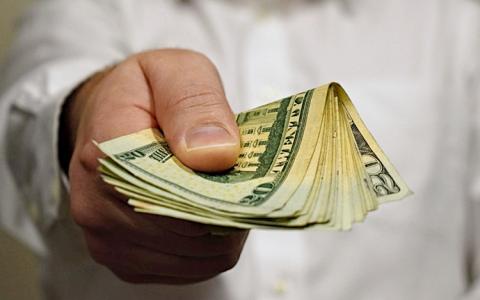
The world's richest have seen their fortunes soar during coronavirus, rewarding wealth managers that helped them profit from the pandemic.
Even before coronaviruas was declared a pandemic, wealth managers and private bankers were preparing for the storm. Markets were already being hammered in Asia, and many-a-millionaire in the West wanted to make sure they were ready.
"Here in London, everything was normal. We were still eating out in restaurants," says Georgios Ercan, head of business development at Dolfin, a London-headquartered wealth management firm.
Then it hit: Trading volumes went through the roof and advisers were hurriedly reassuring clients, even as they were kicked out of their offices to work from home. "We were literally phoning our clients 12 hours a day," says Rebecca Hughes, managing director at Coutts, a U.K. private bank.
But the hard work paid off. During the first three months of the year it was only wealth managers that outperformed the market, says a report from Finncap, a U.K. financial services firm, which gives special mention to Schroders, Hargreves Lansdown and Tatton Asset Management.
"Our portfolios were nowhere near down as much as the FTSE 100," says Hughes of Coutts's performance.
Some clients' fortunes soared to new highs. Forbes reported 600 billionaires added more than $400 billion to their wealth during the pandemic, as markets crashed and then bounced back.
Over half their cuts came from travel and holidays (private jet travel dropped 68% between April and May according to WingX). Other savings came from eating out and shopping, as spending on luxury goods ground to an almost complete halt.
Some wealthy business owners have saved millions even as their companies have benefited from government support measures.
Wealth managers have been richly rewarded for their work. Profits at UBS, the world's largest wealth manager, were up 40% for the first three months of the year. Fellow Swiss bank Credit Suisse reported a 75% increase in quarterly profits. Coutts saw an additional £424 million ($542 million) pour into its investment products.
Perks that richer clients enjoy are also returning. Pre-pandemic these included tickets to theatre and sporting events. Now Coutts is running virtual wine tasting events. "Clients just enjoyed doing something that was a little bit different," says Hughes.
How The Rich Are Investing Post-Pandemic
The question now is what will happen to all of that saved money?
"I’m on video calls all day, from 8 a.m. until 10 p.m," says Ercan. "Clients are bored, so they’re trying to read the markets and come up with ideas."
This is particularly true of newer clients and more recent wealth creators who want more reassurance, says Annabel Bosman, head of Relationship Management at RBC Wealth Management. Some might be hoping to recoup losses that have mounted over the past two months.
Don't be so hasty, say their advisers. "They need to keep to the road map and stick to the plan," says Hughes. Invest for the long-term and don't be too reactionary is the prevailing message. Especially as the storm is still yet to pass.
However, what if the rich don't start spending again? "If these savings are not spent on productive activity, there is a real danger that they will simply add to asset price inflation, a productively useless but nevertheless profitable activity at least for some," says the New Policy Institute in a note co-authored by former Downing Street economic adviser Dan Corry.
The worry then is that we will come out of the pandemic in a more unequal world, as the rich hold onto their gains while everyone else remains the same if not worse-off.
Talk of a wealth tax has been gaining both to counter this and pay for the enormous bill that governments have built up to fight the economic consequences of the pandemic.
"As most agree that at some stage taxes will need to rise, the burden should fall on those with high incomes-on the higher, not standard, tax rates," says the New Policy Institute. Any such taxes will give wealth managers something else to worry about.
This article originally appeared on Forbes.



